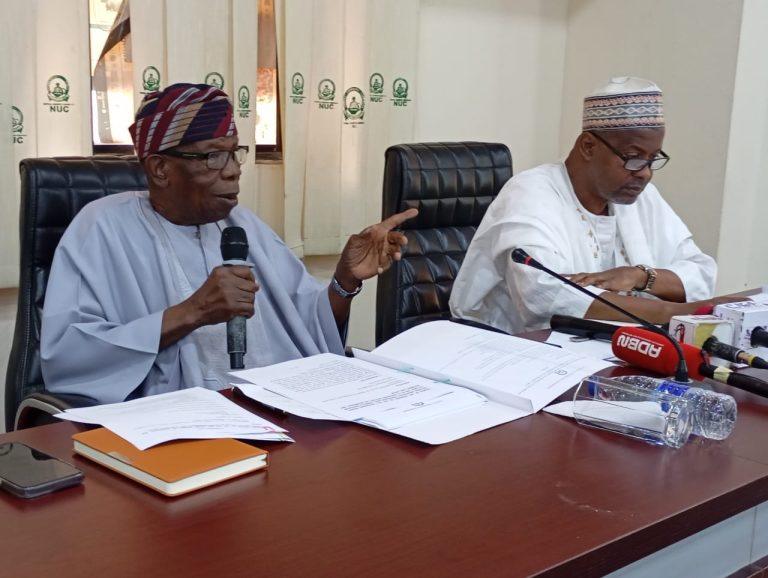
In 1961, South Korea was a nation on its knees. Its per capita income hovered around $80, literacy rates lagged, and companies like Samsung and Hyundai were little more than modest family-run businesses. Fast-forward six decades, and those same firms now anchor a trillion-dollar economy. The lesson? National transformation begins not with miracles, but with alignment—between ambition, policy, and disciplined execution.
Nigeria, Africa’s most populous nation, sees its moment in similar terms.
With over 220 million people, a median age of just 18, and close to 4 million new entrants into the workforce annually, Nigeria sits on a demographic goldmine. But unlike past decades when its potential was the headline, today’s message from the National Agency for Science and Engineering Infrastructure (NASENI) is clear: potential must be converted into production.
“We don’t need to wait to be developed. We can build,” the agency says in its latest strategic address. “The goal is not isolation, but inclusion—reinvesting value at home and transforming local ambition into global relevance.”
From Imports to Industry
Nigeria’s appetite for imports is well-documented: in Q3 of 2024 alone, the country spent trillions of naira on goods that could, in theory, be produced domestically—ranging from solar panels and software to machine parts and even furniture. That, according to NASENI, is a missed opportunity.
The agency is now on a mission to redirect even a fraction of that capital into local manufacturing—backed by data, discipline, and bold targets. In 2024, it:
- Launched 35 market-ready products
- Secured $3.25 billion in private and development capital
- Trained over 5,000 local innovators
- Deployed smart irrigation systems in northern farms and tested locally built lithium batteries in off-grid rural communities
The aim is to build a new industrial backbone, not reliant on aid or oil, but rooted in Nigerian capability.
A Policy-Driven Pivot
At the center of this shift is “Nigeria First”, a national policy signed into law by President Bola Ahmed Tinubu in 2024. But unlike past policy slogans, NASENI describes this as a “new operating system” for development—designed to prioritize locally developed technologies, stimulate domestic industry, and anchor economic transformation on national talent.
“This is not politics. This is economics—with purpose,” the agency asserts.
Public procurement, which accounts for 25–30% of Nigeria’s GDP, is one of the largest levers in this strategy. With the nation’s GDP projected to hit $1.4 trillion by 2025, NASENI is advocating for a shift in government purchasing—urging Ministries, Departments, and Agencies (MDAs) to prioritize Nigerian-made goods, technologies, and services.
If even half of that procurement spending (an estimated $350–$420 billion) goes local, up to 2 million jobs could be created annually.
Innovation as Infrastructure
Beyond policy, NASENI is investing in the infrastructure of innovation:
- HatchBox, its incubation platform, is set to support 10,000 innovators this year
- In partnership with AfriLabs, NASENI launched a national Innovation Hub for hardware and software startups
- Regional manufacturing centers focused on agriculture, energy, and ICT are being built in multiple states
- A flagship project to establish Nigeria’s first lithium-ion battery plant is now underway
This integrated approach isn’t just about supporting startups; it’s about shaping an industrial ecosystem—one capable of moving Nigeria from consumption to value creation, from import dependency to global competitiveness.
Beyond Slogans: A National Movement
What’s unfolding is not just a policy drive, but a movement, one that calls on public and private actors to rethink how they support Nigeria’s future.
“Patriotism must become more logistical than symbolic,” NASENI says. “It should live in vendor lists, procurement memos, and balance sheets.”
The goal isn’t to retreat from globalization—but to engage it from a position of strength. By building capabilities locally, Nigeria aims to take its place at the table not just as a market—but as a maker.
In many ways, Nigeria’s quest mirrors South Korea’s journey—not through mimicry, but through committed, country-specific innovation. The vision is clear: a Nigeria that does not wait to be transformed, but takes the reins of its own transformation, one procurement decision, one innovation, and one entrepreneur at a time.



